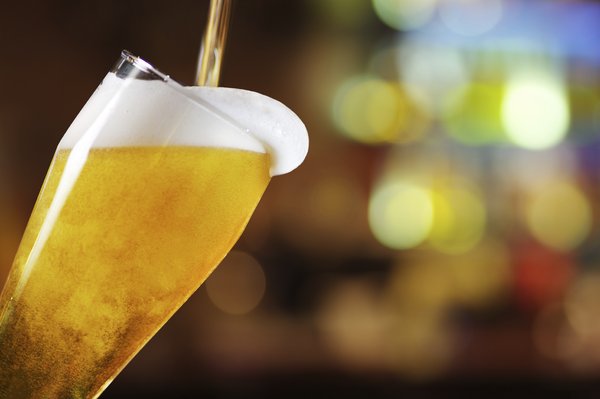You're sitting down at a bar, and reflexively, you reach for the beer menu. Line by line, you see all the standards: the beer name, the brewery, the alcohol percentage — but then, popping out at you, there's that little "IBU" acronym, accompanied by a number, that goes unexplained.
What's that all about?
Determined to get the 411 on what that beer's IBU number actually signifies, and how you can use it to inform your next beer purchase, we reached out to Victory Brewing Company co-founder Bill Covaleski for an answer.
I imagine a lot of people are clueless when they see an IBU number — it’s not quite as obvious as an ABV percentage. What is it?
- The world is full of questions we all want answers to but are either too embarrassed, time-crunched or intimidated to actually ask. With Infrequently Asked Questions, we set out to answer those shared curiosities.
It’s a measurement of the bitterness that a beer can contain, and it was the American Society of Brewing Chemists that [came up with] this measurement and the process of identifying the values to it. So, going deeper into how we get there, hops are comprised of resins, or oils, and in those oils are humulones, and primarily that component is what’s responsible for bitterness. The humulones represent a compound called alpha acid, and by a boiling of hops, those alpha acids become the bitter component we taste. And then 'International Bittering Units' was a scientific way to quantify the amount of bitterness that’s in a finished beer.
What are the numbers indicating?
The higher the number, the more bitter the beer is going to be considered by the consumer because it literally has more bittering units to it. And I really want to stick to the term 'bitterness' because there are other flavors in hops. If a beer has a higher ranking in IBU, it tells us nothing about whether it will taste like pine, citrus, herb or grass. Those flavor assertions, or descriptions, are independent from pure bitterness.
Is there a sweet spot breweries aim for?
That depends on what type of beer someone’s making. If they’re making an IPA, they’re going to be pushing 60 IBUs, but if they’re trying to make a beautiful Helles lager, they’ll be at 15 to 20.
Can you think of any beers that hit 100?
- More Infrequently Asked Questions
- Will reusing a plastic water bottle actually make you sick?
- Why are beer bottles brown or green?
- Why do disposable coffee cups still leak?
I can’t name one that’s 100, but 100 is not necessarily the end of the scale. It’s not a 0 to 100 scale. It’s — I actually don’t think it’s viewed as a scale whatsoever. You can apparently stack up as many IBUs as possible.
Is this something only craft breweries are using?
No, it really is all breweries; it really is an international standard. And how bitter you can get, it reminds me of something Garrett Oliver, the brewmaster at Brooklyn Brewery, once said — going back to 2003 and 2004 when double and triple IPAs were the rage and everybody would seem to be striving for more bitterness. He equated it to going into a restaurant and telling a waiter that he wanted the chef to make the most salty dish possible. It’s sort of an absurd request because you don’t want something extreme; you want something pleasant.
Yet, people seem into finding really bitter beers?
Yeah, you know, there’s some machismo to it or something — ‘Yeah, I drink a 90 IBU beer. I’m badass!’ You know, we have the Scoville level of heat for peppers, and there are people who are like, ‘Yeah, I did the ghost peppers!’ So I think, oddly, there’s a competitive vibe to this, where people want to kind of outdo one another. And I think that’s more consumer-driven than brewer-driven, but it could be a little bit of both.
I guess the point I’d make is that different beer styles will have appropriate ranges of IBUs. So if someone is drinking a delicious spice beer, they shouldn’t be expecting it to be high IBUs because, stylistically, it’s not what it calls for.
Have a question you're dying to have answered? Send an email to entertainment@phillyvoice.com, and we'll find an expert who can give you the answer you're craving.

